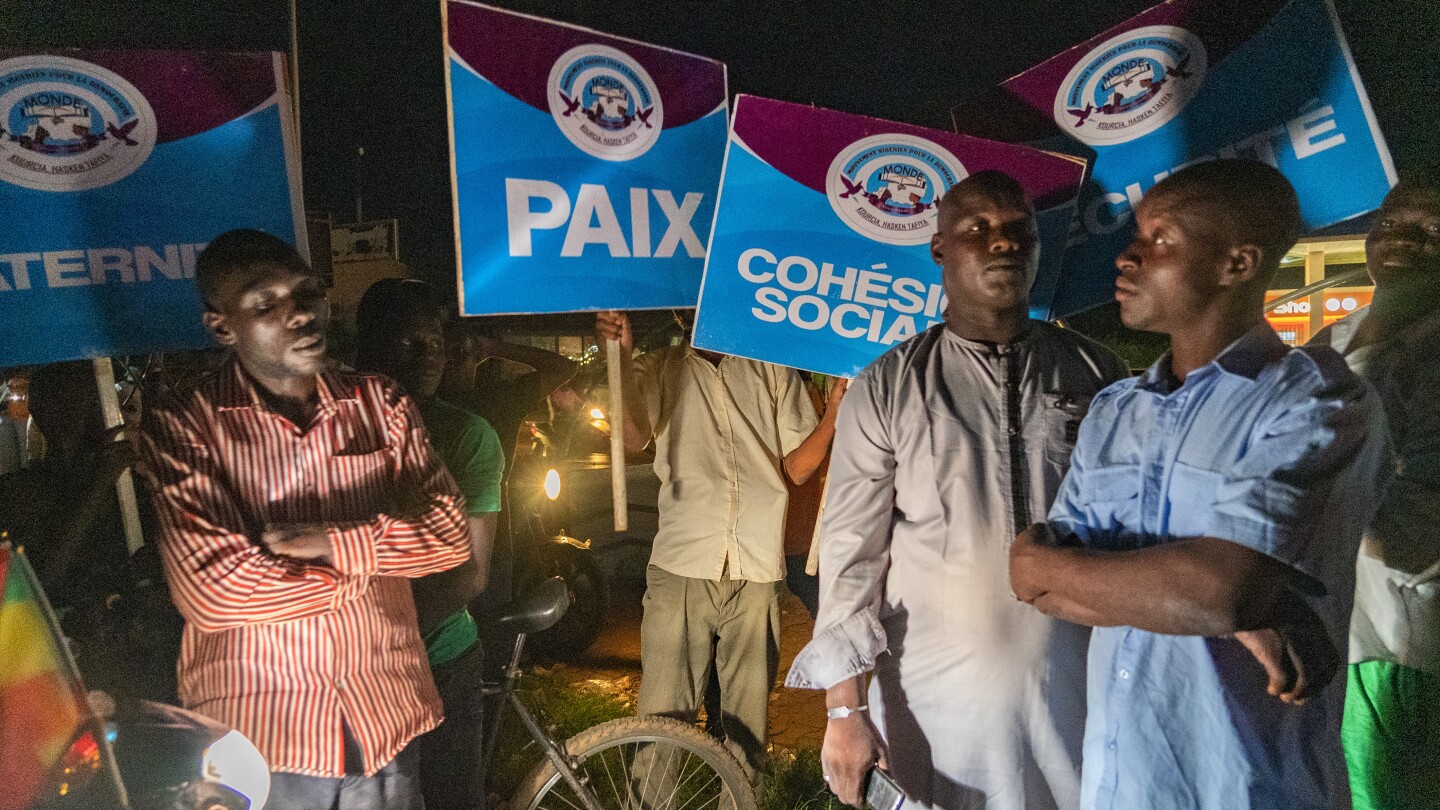NIAMEY, Niger (AP) — The deadline has arrived Sunday for Niger’s military junta to reinstate the country’s ousted president, but the West Africa regional bloc that has threatened a military intervention faces prominent appeals to pursue more peaceful means.
Neighboring Nigeria’s Senate on Saturday pushed back against the plan by the regional bloc known as ECOWAS, urging Nigeria’s president, the bloc’s current chair, to explore options other than the use of force. ECOWAS can still move ahead, as final decisions are taken by consensus by member states, but the warning on the eve of Sunday’s deadline raised questions about the intervention’s fate.
Algeria and Chad, non-ECOWAS neighbors with strong militaries in the region, both have said they oppose the use of force or won’t intervene militarily, and neighboring Mali and Burkina Faso – both run by juntas – have said an intervention would be a “declaration of war” against them, too.
Niger’s ousted President Mohamed Bazoum said he is held “hostage” by the mutinous soldiers. An ECOWAS delegation was unable to meet with the junta’s leader, Gen. Abdourahmane Tchiani, who analysts have asserted led the coup to avoid being fired. Now the junta has reached out to the Russian mercenary group Wagner for assistance while severing security ties with former colonizer France.
Hours before Sunday’s deadline, hundreds of youth joined security forces in the darkened streets in Niger’s capital, Niamey to stand guard at a dozen roundabouts until morning, checking cars for weapons and heeding the junta’s call to watch out for foreign intervention and spies.
“I’m here to support the military. We are against (the regional bloc). We will fight to the end. We do not agree with what France is doing against us. We are done with colonization,” said Ibrahim Nudirio, one of the residents on patrol.
Some passing cars honked in support. Some people called for solidarity among African nations.
It was not immediately clear on Sunday what ECOWAS will do next.
The regional bloc shouldn’t have given the junta a one-week deadline to reinstate Bazoum but rather only up to 48 hours, said Peter Pham, former U.S. special envoy for West Africa’s Sahel region and a distinguished fellow at the Atlantic Council. “Now it’s dragged out, which gives the junta time to entrench itself,” he said.
The most favorable scenario for an intervention would be a force coming in with the help of those on the inside, he said.
The coup is a major blow to the United States and allies who saw Niger as the last major counterterrorism partner in the Sahel, a vast area south of the Sahara Desert where jihadists linked to al-Qaida and the Islamic State group have been expanding their range and beginning to threaten coastal states like Benin, Ghana and Togo.
The United States, France and European countries have poured hundreds of millions of dollars of military assistance into Niger. France has 1,500 soldiers in the country, though their fate is now in question. The U.S. has 1,100 military personnel also in Niger where they operate an important drone base in the city of Agadez.
While Niger’s coup leaders have claimed they acted because of growing insecurity, conflict incidents decreased by nearly 40% in the country compared to the previous six-month period, according to the Armed Conflict Location and Event Data project. That’s in contrast to surging attacks in Mali, which has kicked out French forces and partnered with Wagner, and Burkina Faso, which has gotten rid of French forces as well.
The uncertainty in Niger is worsening daily life for some 25 million people in one of the world’s poorest countries. Food prices are rising after ECOWAS imposed economic and travel sanctions following the coup. Nigeria, which supplies up to 90% of the electricity in Niger, has cut off some of the supply.
Humanitarian groups in Niger have warned of “devastating effects” on the lives of over 4.4 million people needing aid.
Some of Niger’s already struggling residents said military intervention is not the answer.
“Just to eat is a problem for us. So if there is a war, that won’t fix anything,” said Mohamed Noali, a Niamey resident patrolling the streets.
___
AP writer Chinedu Asadu in Abuja, Nigeria, contributed.

